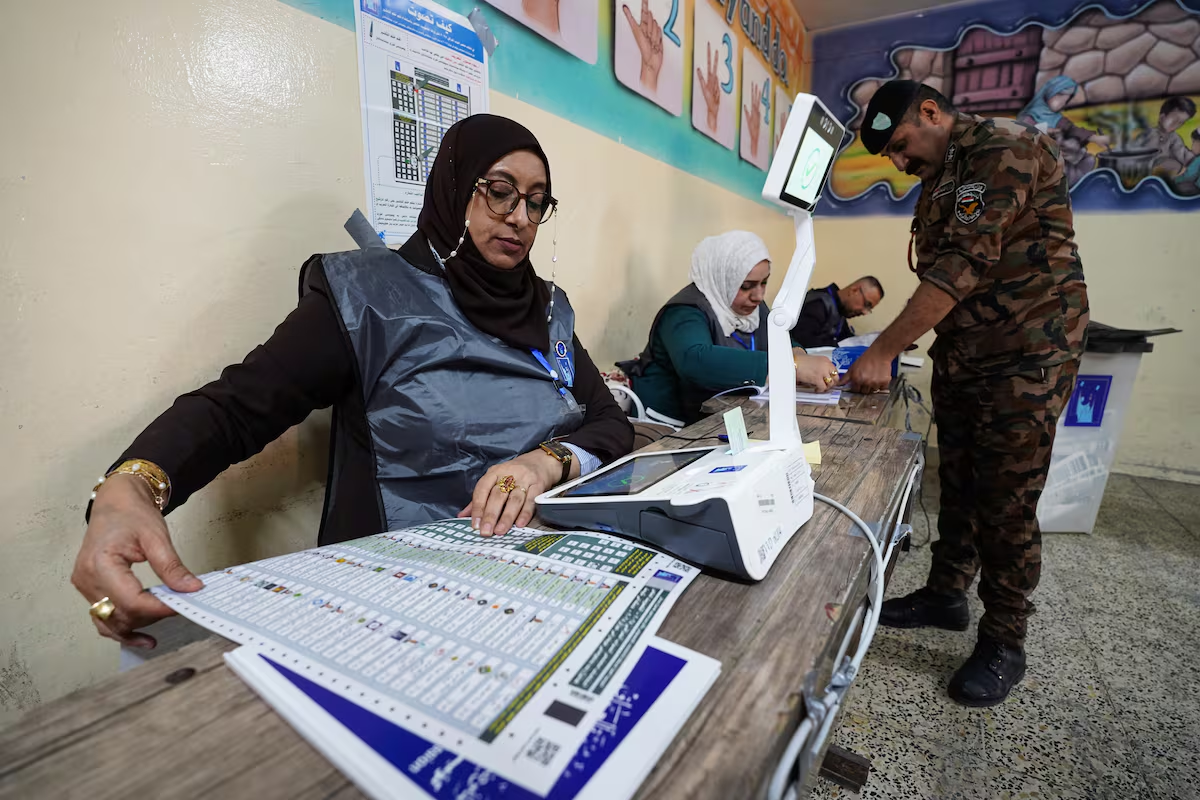
Iraq has been forgotten by the international press. Once the self-proclaimed Islamic State (ISIS) was defeated, the human and social devastation caused by the US occupation and subsequent sectarian civil war was overshadowed by a series of punishing conflicts in the Middle East (including Syria, Gaza, and Iran). For this reason, the US military withdrawal that began last summer and this Tuesday’s parliamentary elections received little attention. Both have the potential to distance Iraq from Iran’s influence network.
After 20 years of an on-and-off presence in Iraq, the United States has agreed with the Baghdad government to end the international coalition against ISIS, except for a small number of advisers and instructors. The measure has political and security implications, making it a central issue in the election campaign. Shiite political parties, which have been promoting this movement in collaboration with Iran, claim that this is a victory for national sovereignty and talk about an “end to the occupation.” Most nationalist groups, particularly Sunnis, fear a return to violence if pro-Iranian militias try to impose power.
Since the US invasion in 2003, the Islamic Republic of Iran has influenced neighboring Iraq far beyond historical, cultural and religious ties. His support for Shi’ite-based parties and militias (both countries’ Muslim-majority) largely determined Iraq’s political future. Its dominance has declined since the US assassinated General Qasem Soleimani (who served as the liaison and glue for these groups) five years ago, but it still maintains support and is being reevaluated as it loses its stooges (proxy) the rest of the Middle East.
The war in Gaza has given Israel a pretext to undermine the capacity of Tehran-backed militia networks in the region (the so-called Axis of Resistance). In addition to decimating the Palestinian organization Hamas (responsible for the October 7, 2023 attack), it also inflicted severe damage on Hezbollah in Lebanon, the Houthi rebels in Yemen, members of the Revolutionary Guards in Syria, and inside Iran, which it ultimately bombed in a humiliating operation against its nuclear facilities last June.
The Islamic Republic’s allies in Iraq are the only countries that remain silent on the conflict with their supporter, Israel. This was a step supported by the Iranian government, but determined by pressure from the Baghdad government (always a difficult balance between Iran and the US) and above all by the militias’ fear of both Israeli and US reactions and domestic reactions. Tired of political tensions, Iraqis are refusing to engage with any new foreign state. The situation also sets the stage for the government’s allied Shiite faction to split in the face of the prime minister’s efforts to dismantle the armed groups (legitimizing their presence in the fight against the “occupiers”) once the US military withdrawal is agreed.
In fact, several Shia groups under Tehran’s rule submitted opposition lists in these elections. Therefore, there is added interest in the electoral event, the outcome of which will reveal the extent to which Iran’s boss holds his ground. The Iraqi militia is the last surviving pawn. Iran will not give up on continuing to intervene in countries it considers part of its sphere of influence, even if its approval ratings decline in the polls, but the costs will be higher and it will be harder to maintain supply routes to allies in Syria and Lebanon.



